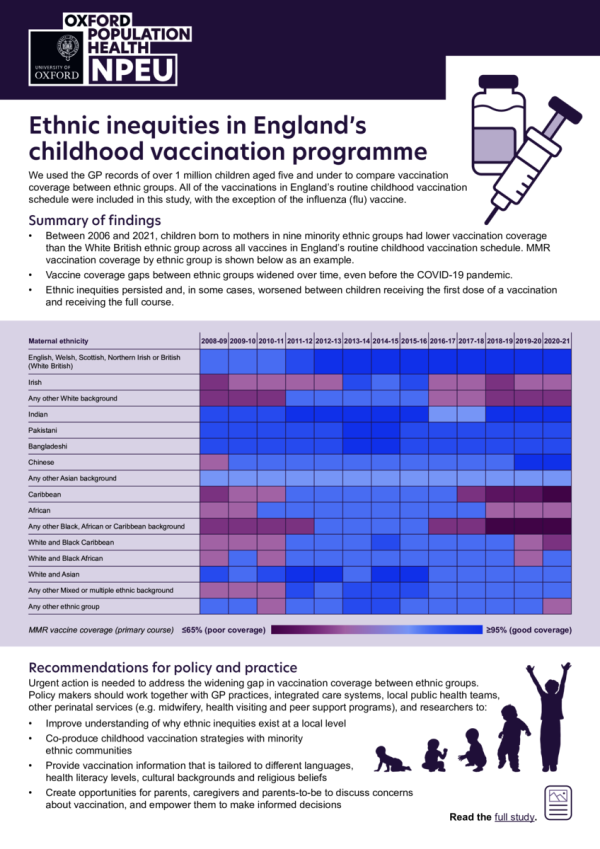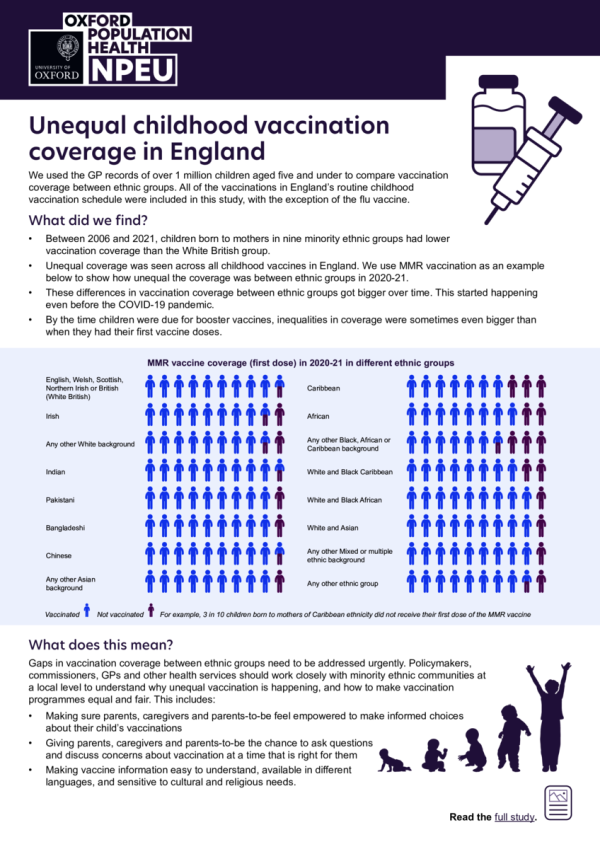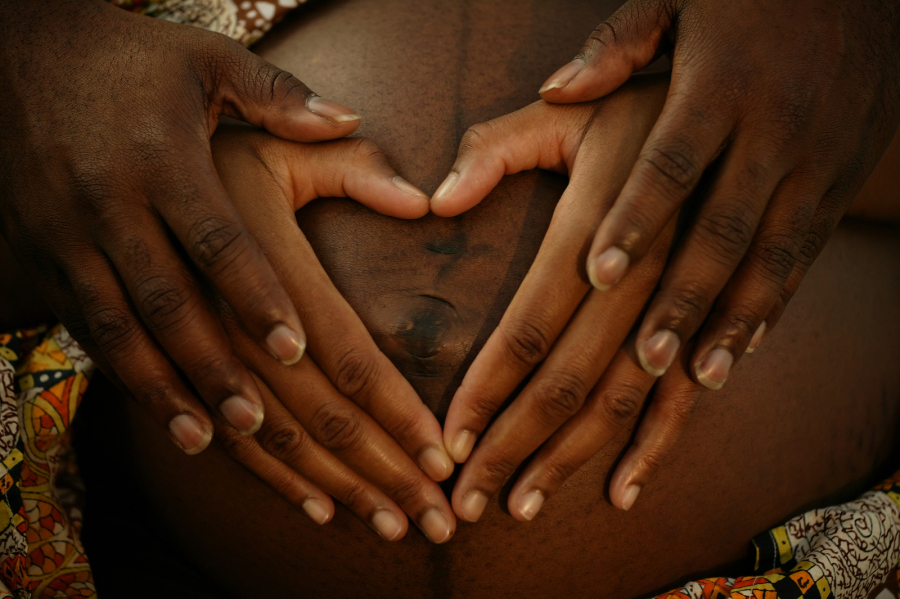Study identifies ethnic inequities in England’s routine childhood vaccination programme

Published on Wednesday, 22 November 2023 Post
Researchers at Oxford Population Health's National Perinatal Epidemiology Unit have called for urgent policy action to address ethnic inequities in England's routine childhood vaccination programme. The research, published in eClinicalMedicine, has found that inequities in vaccination coverage between ethnic groups are stark and have widened over time for all vaccines on the childhood vaccination schedule.
Routine childhood vaccination coverage (that is, the proportion of children receiving their vaccines) has declined in England over the past ten years. This study aimed to identify the population groups in England that may be underserved by the national programme to support the development of policies that will ensure equitable access to vaccinations and improve overall vaccination coverage.
The researchers analysed vaccination records for over 1 million children who were aged five and under between 2006 and 2021, and compared differences in the proportion of vaccinated children by their mother's ethnicity. All of the vaccinations in the routine schedule were included in this study, with the exception of the influenza (flu) vaccine.
Key findings:
Children born to mothers in nine minority ethnic groups had lower vaccination coverage than the White British ethnic group across all vaccines in England's routine childhood vaccination schedule.
Children born to mothers of Caribbean ethnicity and Any other Black, African and Caribbean background were most affected by these inequities. For example, coverage for most vaccines in most years was above 90% for the White British group; in comparison, coverage for the infant vaccine (5-in-1) plus preschool booster in 2020-21 was 61% for the Caribbean group, and coverage for the first dose of MMR was 68% for Any other Black, African and Caribbean background.
Vaccine coverage gaps between ethnic groups widened over the period covered by this study even before the COVID-19 pandemic.
Ethnic inequities persisted and, in some cases, worsened between children receiving the first dose of a vaccination and receiving the full course. Accounting for sociodemographic, maternal, and birth related factors in the analysis made minimal difference to these findings.
Claire Zhang, DPhil candidate at Oxford Population Health, said,
The results of our study suggest that urgent action is needed to address the widening gap in vaccination coverage between ethnic groups. Co-producing childhood vaccination strategies with minority ethnic communities could help policymakers and those delivering services to better understand the drivers behind these inequities at a local level, and empower parents, caregivers and parents-to-be to make informed decisions about vaccination.
An advisory group of mothers with young children from different ethnic backgrounds across different regions of England worked with the researchers to interpret the study's findings in a culturally-sensitive and parent-sensitive way.
This research was funded by the University of Oxford Clarendon Fund, St Cross College and Oxford Population Health.






